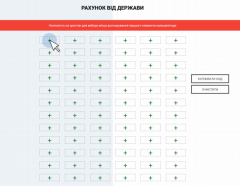Ukraine Should Not Inject ‘Cheap Money’ Into Economy, International Experts Say
Not all measures to mitigate the quarantine consequences, which are actively used by developed economies with stable currencies, are appropriate in Ukraine. According to international experts, liberalisation of the monetary policy can harm the Ukrainian economy.
CASE Ukraine, a think tank, held a webinar ‘Covid-19 Crisis: Quantitative Mitigation and Permissible Limits’ devoted to the special features of the monetary policy application in the pandemic context. The webinar was hosted by the Executive Director of CASE Ukraine Dmytro Boyarchuk, Research Fellow at the Bruegel Centre (Brussels), Prof. Marek Dabrowski, and Research Fellow at the CASE (Poland), Professor at Bournemouth University (UK) and Leon Kozminski University (Poland) Prof. Christopher Hartwell.
Dmytro Boyarchuk noted that many countries had recently resorted to large-scale quantitative easing and reduced interest rates. Such is the response to the global crisis of the vast majority of the world’s central banks. Many officials in Ukraine like this approach, but the National Bank of Ukraine still limits its efforts to decrease the discount rate without additional monetary incentives. In response, the Chairman of the Council of the National Bank of Ukraine Bohdan Danylyshyn is actively criticising the Bank’s Management Board for its restrained policy. He actively calls for liberalising it, which, in his opinion, should lead to activisation of the economy. The idea of stimulating the economy with a softer monetary policy is also supported by the Minister of Economic Development, Trade and Agriculture Ihor Petrashko. However, a weak monetary policy is not equally good for all countries.
According to Professor Dabrowski, one should distinguish between certain groups of countries, for which there are different economic conditions and consequences of the monetary policy in the context of the anti-coronavirus measures in terms of their currencies stability. Developed economies with stable, freely convertible currencies are pursuing a liberalisation policy and have a good reason to do so. Those countries are experiencing a capital influx – in the context of growing global risks, investors are looking for safe harbours and withdraw their capital from unstable countries.
Economies with weak currencies, which do not play a significant international role and have a low level of confidence, can receive a completely different result from quantitative easing programmes than expected. These countries include, in particular, the post-Soviet countries, Ukraine among them. Countries with low confidence currencies or not freely convertible currencies should not pursue quantitative easing as they experience an outflow of capital, demand for their currency falls, and this results in the need to maintain the exchange rate at such times. The situation is complicated by political instability and the high dollarisation of the economy.
As for the possible time of the end of the economic crisis caused by the pandemic, Professor Dabrowski believes that we have passed just the first phase, and many consequences have not yet shown up. The so-called V-shaped economic recovery is unlikely. At the same time, the optimism of financial markets in recent months is contrary to the real sector’s realities. The additional incentives provided by central banks suggest that the problems are more profound than expected.
Professor Christopher Hartwell noted that the world economy was approaching a financial crisis before the pandemic started in March. Thus, Covid-19 and quarantine reinforced the existing financial problems, and therefore the developed economies have little chance of avoiding a recession. The Eurozone financial sector is too fragile. In particular, government bonds have ceased to be the most reliable financial instruments, as clearly proven by the experience of Italy, Spain, and Greece, and European commercial banks are also experiencing significant problems. Besides, Professor Hartwell pointed to the possibility of a new financial bubble in the real estate market as there was a substantial increase in lending for real estate purchases, which warmed up real estate prices in the Eurozone on the eve of quarantine.
Professor Hartwell believes that to liberalise the monetary policy and print money is not the best way to fight the crisis because it was caused by external factors, namely the administrative constraints on economic activity. ‘The problem is not a lack of liquidity, but a shock of demand,’ he noted. Therefore, the problems are generated primarily in the real sector of the economy.
Download presentation «Why do central banks in emerging-market economies have less room to maneuver than the Fed or ECB?» by Prof. Marek Dabrowski
Download presentation «Preparing for the Next Financial Crisis» by Prof. Christopher Hartwell
Webinar will take place under the Ukrainian Think Tank Development Initiative (TTDI), which is implemented by the International Renaissance Foundation (IRF)in partnership with the Open Society Initiative for Europe (OSIFE). TTDI is funded by the Embassy of Sweden in Ukraine. The views and interpretations that will be expressed in this webinar are the speakers’ and do not necessarily reflect those of the Government of Sweden, IRF and OSIFE.
